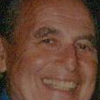 If you ever wondered how tight a control the Peoples Republic of China holds over Hong Kong's seven million inhabitants, you need look no further than last week's election for a Chief Executive.
If you ever wondered how tight a control the Peoples Republic of China holds over Hong Kong's seven million inhabitants, you need look no further than last week's election for a Chief Executive.Backed by China's heavyweight politicians and by the rumored alliance of Hong Kong's organized crime cartel, Leung Chun-ying, 57, won 689 of the 1132 votes cast by members of the city's Election Committee.
He gets the top post for five years. He was the least popular candidate.
The March 25 election was a disaster for pro-democracy forces. A total 1,132 handpicked voters were outnumbered by demonstrators who were kept away from the assembly with pepper spray from police.
Hong Kong allows free speech and assembly but not free elections as practiced in more democratic countries. Mainland China had promised democracy for Hong Kong when it received sovereignty over Hong Kong from the United Kingdom on July 1, 1997. The British had ruled Hong Kong for 99 years.
In a mock general poll conducted by Hong Kong University to show ordinary Hong Kongers' unhappiness with an election in which they have no say, around 55 percent of the 222,990 votes cast were blank in the poll. Leung received 17 percent - hardly a majority support.
A major country-wide demonstration is rumored to be planned for July 1 by activists eager to show the world how farcical the elections were.
The other two candidates again picked the Election Committee and not by the voters, were Henry Tang Ying-yen and Albert Ho. Tang was the Committee's first choice until it learned of Tang's extra-marital affairs and his illegal construction of a 2,000-square-foot basement in one of his homes.
Ho, the third candidate is a pro-democracy politician - not a choice Communist China was ready to embrace.
The University of Hong Kong poll clearly showed a large segment of the public would rather see the election fail than to see either Tang or Leung win.
Real estate interests in Hong Kong were particularly upset with Leung's win. He had promised to construct public housing throughout the country - not the No. 1 project on the lists of most high-profile luxury and commercial developers.
Elections are held in Hong Kong when certain offices in the government need to be filled. Every four years, half of the unicameral Legislative Council of Hong Kong's s 60 seats representing the geographical constituencies are filled by the electorate. The other 30 seats representing the functional constituencies are elected through smaller closed elections within business sectors.
Hong Kong has a multi-party system, with numerous parties in which no one party often has the chance of gaining power alone. The Chief Executive of Hong Kong is supposed to be non-partisan, but has to work with several parties to form (de facto) coalition governments.
Any Hong Kong permanent resident aged 18 or above may register as an elector in the geographical constituency in which he or she resides.
That all sounds good on paper, many Hong Kong nationals note, but when it comes to the real thing, it's all a farce.

 By
By 